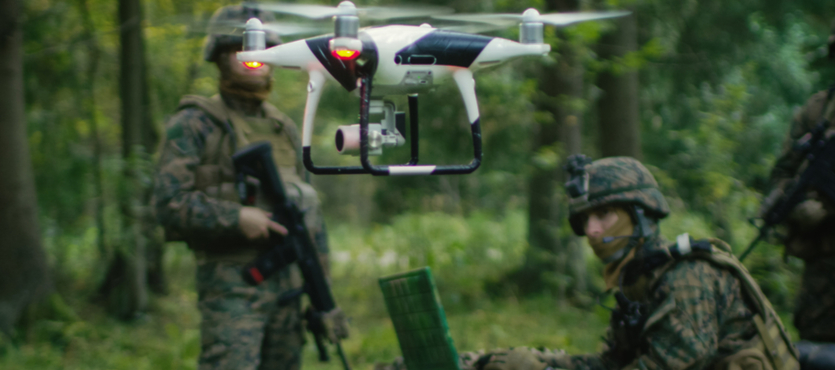After almost two decades of back-and-forth operations, North Atlantic Treaty Organizations officials believe that victory is closer than ever in the war-torn country of Afghanistan. As a result, they see no need to privatize the conflict.
NATO spokesperson Col. Knut Peters said there were a number of “clear examples,” including a liveable capital city and returning refugees. When confronted with the fact that the Taliban controls almost a third of the country, Col. Peters was dismissive. Statistics “are a very difficult thing” and are easy to manipulate, he insisted. Furthermore, NATO is committed to outcome-based solutions such as the recent free elections, he added. As for the proposed privatization of the war in Afghanistan, Col. Peters said it was “out of the question” as far as U.S. Central Command is concerned, and “not on the table for NATO.”
Afghan President Ashraf Ghani used even stronger terms when condemning the privatization proposal. “Under no circumstances will the Afghan government and people allow the counterterrorism fight to become a private, for-profit business,” he said in a statement. U.S. Defense Secretary James Mattis was a bit more tactful. He earlier opined that privatization was “probably not a wise idea” when the “nation’s credibility is on the line.”
Have We Heard This Before?
At first, the pronouncement of success seems to echo some earlier claims made by other leaders in other wars. Shortly after the invasion of Iraq in 2003, American officials famously (or infamously) proclaimed that major combat operations had ended and that only “mopping up” remained. We now know that this assessment was incredibly premature.
A generation earlier, another American military commander offered a similar evaluation about Vietnam. Only about two months before the major North Vietnamese/Viet Cong Tet Offensive in January 1968, General William Westmoreland told reporters “I am absolutely certain that whereas in 1965 the enemy was winning, today he is certainly losing.”
Brave servicemembers soon reversed all the military gains that the enemy made, but the PR damage had been done. As far as many were concerned, the general was either out of touch with the military situation or offering false hope.
But the NATO pronouncement does not echo Westmoreland’s words. Instead, it reminds us of the aftermath of the 1972 Easter Offensive. Roughly four years after Tet, after most American ground forces had withdrawn, the North Vietnamese and Viet Cong launched another large-scale attack. For a while, it seemed that South Vietnam might essentially collapse. But with massive assistance from American air power, the ARVN forces held the line.
After the smoke cleared, American officials claimed that their policies were effective in Southeast Asia. That pronouncement turned out to be a bit premature, as well.
But the NATO pronouncement is different. It is more like cautious optimism. Additionally, most people understand that it is not possible to “defeat” terrorism in a total way. So, the measure of victory is different in Afghanistan than it was in Vietnam.
Contractors in Afghanistan
It appears that the mass privatization plan may be off the table, at least for now. But regardless of the direction the fighting take moving forward, contractors will play a vital role in Afghanistan and elsewhere in the MENA (Middle East and North Africa) region.
Contractors are not just mercenaries who fight for money and who stand in for front-line soldiers. Instead, contractors play many more roles and are much more valuable, especially in an area like Southwest Asia.
In the Global War on Terror, any troop formation or installation anywhere in-country is a potential target. So, contractors provide vital security that regular servicemembers cannot provide. Many times. Military police units are exactly that. They are police units designed to keep order. They are ill-equipped to deal with suicide attacks and the other threats that are out there. Contractors have the equipment and expertise to fully protect Americans and civilians.
Furthermore, contractors provide essential logistical support. Afghanistan is a long way from Camp Lejeune, and while American forces are well-supplied, it s important to make the most of whatever is available. So, mechanics and other such specialists are vital. Contractors fulfil many of these roles. Private sector workers are generally much more responsive to changing needs, so contractors are well-suited to perform these duties. Furthermore, unlike some other individuals who may see a lonely overseas deployment as a chore, contractors are happy to serve in this capacity.
There are other logistical roles for contractors, as well. Many of them are cooks, office support workers, and so on.
Perhaps most importantly, many contractors have skills and experience that regular servicemembers simply do not have. Translators are a good example. This is one of their most vital roles. American service academies teach Arabic so servicemember translators can bridge the language gap. But, they can not bridge the culture gap. More importantly, many foreigners are hesitant to help an invading army. Only a local can build that kind of trust.
Contractors remain behind once the fighting ends. Some of them serve in rebuilding projects. Typically, contractors direct the work and locals handle the construction chores. Additionally, many contractors serve in security guard capacities. As mentioned, MPs are not equipped to deal with terrorist-level threats, especially when there is little or no backup. But private military contractors are up to the challenge.
Compensation for Injured Contractors
Whether they are American or foreign nationals, most injured overseas private military contractors are eligible for benefits under the Defense Base Act.
Their injuries do not have to be things like combat wounds or construction falls. Instead, the Supreme Court only requires victims to establish a nexus between the deployment and the injury. Almost any connection, however seemingly indirect, will do.
Additionally, the injury does not need to occur during duty hours or even at the post. Once again, any connection usually suffices. For example, a contractor could be injured while shopping in the market or watching Netflix with a local friend.
Contact Barnett, Lerner, Karsen & Frankel, P.A. for more information about DBA eligibility.

